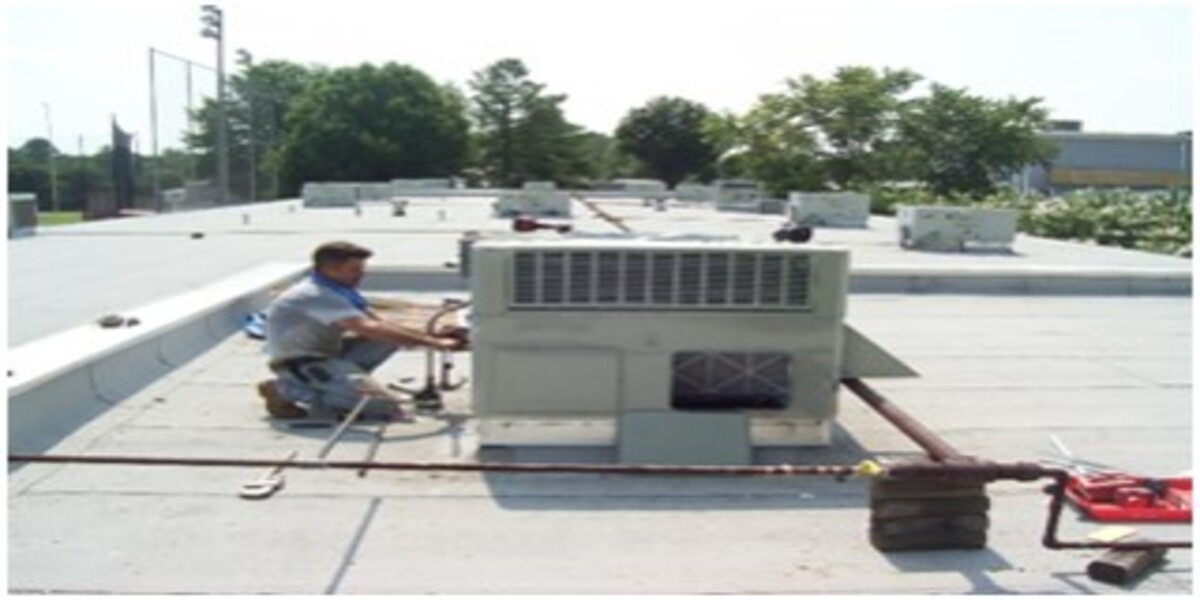Maintaining your own HVAC vs. purchasing a PSA- which one is for you?
When properly maintained, life expectancy for a commercial packaged HVAC system is 15 to 20 years. However, these units function in harsh outdoor environments so without regular service, that number can drop drastically. Some businesses forgo a Planned Service Agreement (PSA) with a HVAC contractor attempting to cut costs. If you are considering the do-it-yourself route, keep in mind this list of the most critical tasks involved in proper maintenance.
- Clean coils and dampers: Condenser coils are exposed to unfiltered outdoor air and are subject to greater degradation. A dirty coil raises condensing temperature from 95° to 105°, which cuts cooling capacity and increases power consumption by 10%. By the same token dirty evaporator coils reduce a system’s air flow lessening its heat transfer efficiency and reducing cooling capacity. With good filtration, the evaporator coil should stay fairly clean but it must be monitored yearly. Dampers must also be clean and well lubricated to avoid sticking.
- Complete Systems Check: Understand that dampers operate in a continual flow of dirty air. If economizers are stuck open, the cooling coil can be over loaded with too much hot outside air. If stuck closed, free cooling potential is robbed. Check to make sure that all dampers can run through their full range. Test the defrost function of the outdoor coil. If too much frost has formed, this can be a sign of heat pump failure. Programmable thermostats must also be checked and adjusted to prevent excessive run-time and maintain comfortable conditions during occupied hours. Air flow temperatures must also be measured to make sure they are within the expected cooling or heating range.
- Filter Change: Air filters help maintain indoor air quality and protect downstream elements from accumulating dirt and hampering performance. Filter change frequency is best based upon pressure drop. Some units have built-in pressure taps for measurement but if not, a technician can install one. Some facilities with many particulates in the air may require monthly filter changes. Once intervals are established, regular filter changes can be scheduled accordingly.
- Refrigerant: Improper refrigerant charge can result in inefficient compressor operation. Too much refrigerant causes the compressor to work harder due to increased pressure. Too little reduces cooling capacity as evidenced by frosting on the evaporator entrance. A lack of refrigerant may be a sign of a leak and should be found and repaired. Electrical testing and oil analysis are the two main tests of compressor health. They determine whether damaging moisture or acid is present in the refrigerant system. If a system fails one or more tests, fitting with filter-dryers may resolve the problem.
- Managing air leaks– On the supply air side, high pressure through small cracks can force a huge loss of conditioned air. Annual checkups should include a survey of air leaks and corrective measures such as replacing screws or latches, and patching or replacing gaskets.
- Fans, Bearings and Belts: Fans blades should be cleaned yearly and might require light oiling two-three times a year. Make sure that fan motors are also running in the right direction to save energy. Belts must also be adjusted for tension and alignment to maintain longevity and efficiency. Improper belt installation is a huge source of lost energy.
- Recordkeeping: Keep a log of readings over time to predict failures, service needs or energy performance. Maintenance should also be regularly documented.
If you do decide to take on your own HVAC maintenance, make sure that your staff has the time and knowledge to handle the task. If, on the other hand, service responsibilities seem overwhelming, seriously consider a PSA with a reputable commercial mechanical company. The energy savings alone can justify the costs.
Consider the story of a facilities manager who took over at a local private school. He decided to cancel the school’s existing $10,000 per month full service maintenance program (all repair and parts covered) in order to save money. Was this the right move? Yes, but probably not for the reason you may guess. With that type of contract, the HVAC company was simply band-aiding old equipment instead of making desperately needed replacements. Once he found a new service contractor (TMC) that tailored his maintenance agreement based on the age of the equipment, he saved tens of thousands of dollars allowing the school to allocate money for replacement of old units. By the second year, utility bills dropped an average of 25% across the campus.

